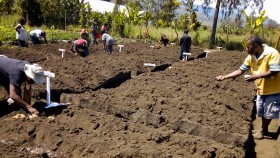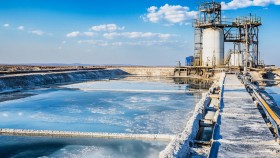Three quarters of Aussies impacted by angry summer bushfires
More than three quarters of Australian adults report that they were affected by the nation's recent unprecedented bushfires, according to a new poll from The Australian National University (ANU).
The latest ANUpoll also found the Government's response to the bushfires had burnt away at Prime Minister Scott Morrison's approval rating and popularity with voters.
Lead researcher Professor Nicolas Biddle said the poll asked a nationally representative sample of more than 3,000 Australians about their experiences of and exposure to the recent extensive bushfires across the nation. The poll is the largest and most representative study on public perceptions about the bushfires to date.
"Nearly every Australian has been touched by these fires and many of us will be living with the effects for years and years to come," he said.
Professor Biddle said he suspected the impact would be widespread, but even he was "surprised at just how far-reaching they are".
"We found that about three million people - more than 14 per cent of adult Australians - reported that they were directly exposed to this year's bushfires.
"This widespread, direct exposure includes property damage, property being threatened and being advised to evacuate.
Indirect exposure was even more widespread. Analysis of the data showed that more than three quarters of Australian adults - more than 15 million Australians - reported some form of indirect exposure.
"This includes having a friend or family member that had property damage; having a friend or family that had property threatened; having their travel or holiday plans affected; being exposed to the physical effects of smoke; or feeling anxious or worried.
"These fires have been unprecedented in scale and global in impact. And now our poll shows just how far and wide and how many Australians have felt the negative and long-lasting effects of this disaster - regardless of their economic, social or cultural background.
Read the full article on the ANU website, featuring commentary by Professor Nicholas Biddle










